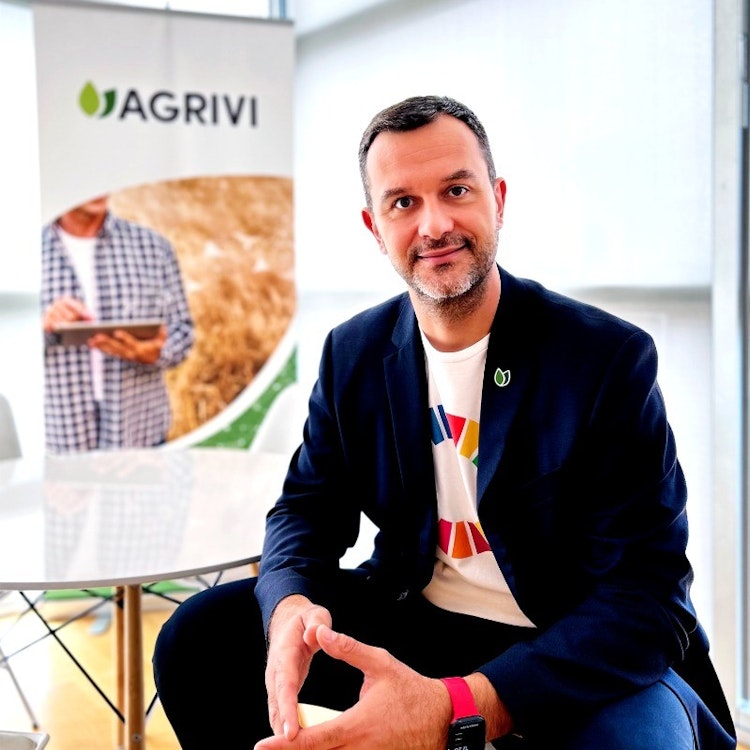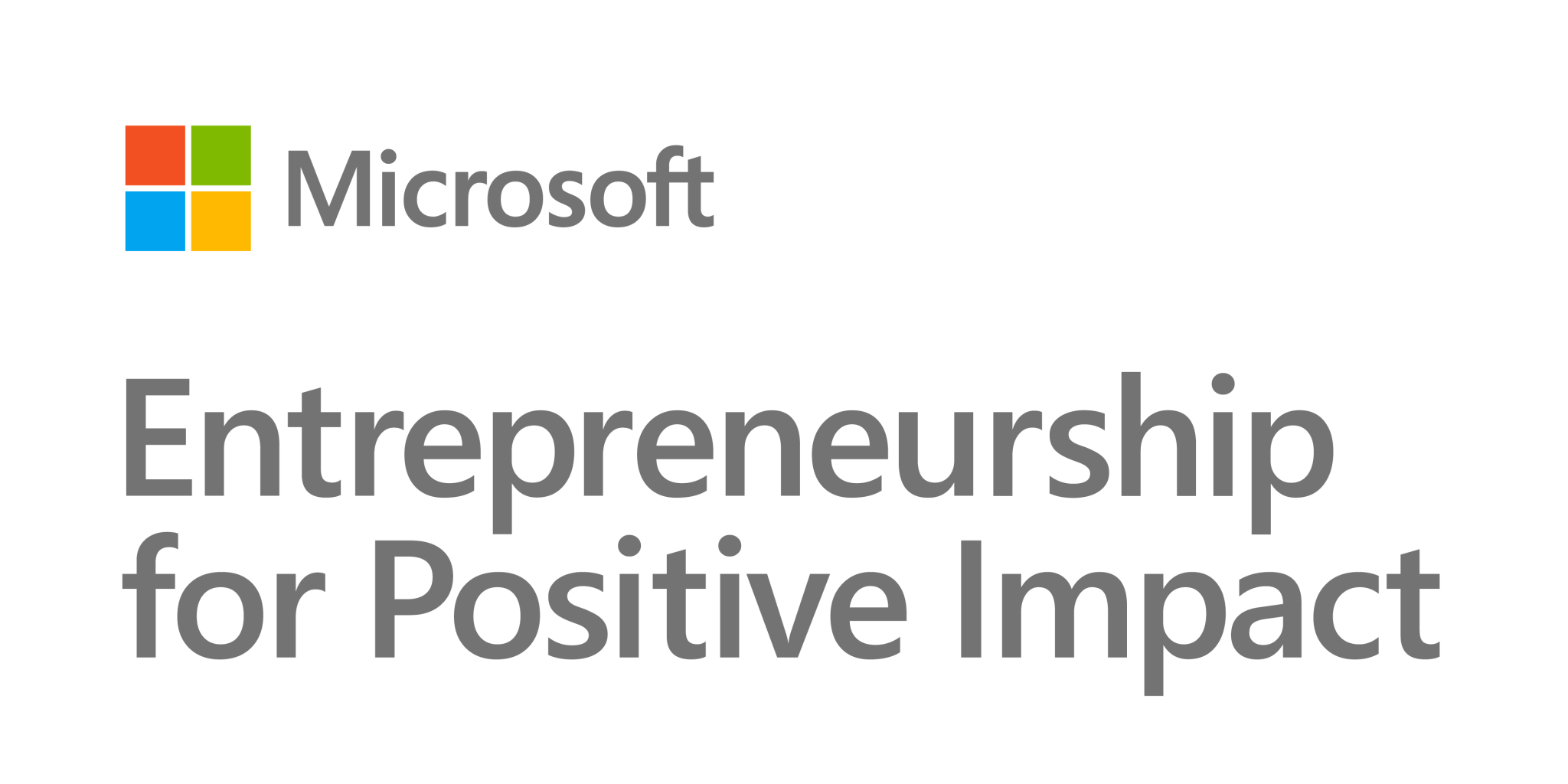To mitigate the looming danger of climate change and help agriculture reduce its impact on the planet, startups are working to try and apply new solutions to the problem.
But convincing farmers to take up technology and embedding innovation into clunky infrastructure can be a barrier. According to one study, over half of farmers in Ireland did not feel confident using technology.
Here’s how two startups — AGRIVI and ScopeInsight — from Microsoft’s Entrepreneurship for Positive Impact initiative, a programme with more than 1,900 entrepreneurs from 94 countries, are building ways to help traditional agriculture adapt to changing conditions.
Changing the mindset of farmers
London-based AGRIVI, which was founded in Zagreb in Croatia, offers farm management software made using Microsoft Azure technology which is mainly used by big farms and food production enterprises. It helps farmers to make agronomic and economic decisions to maximise productivity, profitability and sustainability.
The biggest barrier and challenge in agritech is changing the mindset.
But that’s not where the majority of potential customers are. “Despite many agritech solutions being available, we witnessed that technology adoption remained limited mainly to professional farmers and enterprises,” says Matija Zulj, AGRIVI's founder and CEO. “When you look at the structure of agriculture globally, only 2% of producers are big farms and the other 98% are small and medium sized farms, and they produce 60% of the global food production.”
The problem, he realised, is that many of these smaller farms are unlikely to have the capacity or technical know-how to adopt a new software platform, regardless of how friendly the user interface is.
“The biggest barrier and challenge in agritech is changing the mindset,” says Zulj. “Agriculture is a traditional industry, and shifting from intuition-based decision-making to data-driven, fact-based decisions are still slowing the adoption rate of many technological solutions.”
So, AGRIVI decided to launch AGRIVI Ed, an AI assistant created using the Azure OpenAI service and Copilot service that offers agronomic advice and answers questions over WhatsApp and messenger apps. This assistant looks to address another challenge in the industry: the lack of agronomists available to offer advice to farmers on adopting new technologies or knowledge-sharing.
“The goal was to make this AI advisor intuitive and seamless for farmers to use, regardless of their technological knowledge,” says Zulj. "With the white-labelled AI advisor, we enabled all stakeholders in the value chain to quickly and simply bring their own AI advisor to farmers in their ecosystem. For example, today our AI advisor is brought by crop nutrition companies to farmers to get premium advice about their products, governments to upskill farmers in their country and food companies to advise farmers in their supply chain on regenerative practices."
Standardising emerging markets
ScopeInsight, based in the Netherlands, is also taking on the task of trying to bring new ideas to this established market. The company has developed a standardised rating system for farmer organisations across Africa to measure the professionalism and sustainability of small farms.
If we're not first professionalising farmer organisations, [...] it's pretty much in vain.
This not only helps NGOs, businesses (input providers and off takers) and governments to target appropriate development projects, but also opens up a way for potential partners and investors, like banks, to consider farms in a business context, says ScopeInsight’s CEO Lucas Simons.

While climate mitigation strategies are vital, there’s a crucial focus on standardisation that needs to happen first, says Simons: “If we're not first professionalising farmer organisations [...] it's pretty much in vain. [We can’t just do] a project here and a project there, there's a systematic way of working.”
Collaboration is integral to the ScopeInsight strategy. The access to farmer organisations and data collection requires cooperation from NGOs and government bodies, which are already working with local providers.
Its ratings framework also offers a way to show that farmer organisations have progressed as professional businesses as they improve their scores over time — providing these NGOs and government bodies with evidence that projects have had an impact.
Shifting attitudes
But the tide of attitudes is slowly shifting. As regulatory pressures push the agriculture sector to reduce the impact it has on the planet, some players are becoming receptive to the opportunities that technology brings the sector, says Zulj.
“Farmers are becoming more open to technology solutions as they see the clear benefits that help them make informed decisions and take precise actions,” he says.
[Microsoft’s Entrepreneurship for Positive Impact programme gave] us a high level of support to navigate through our strategic and go-to-market challenges.
Participating in Microsoft’s Entrepreneurship for Positive Impact programme has been a crucial part of growing the company in response to this increase in interest, Zulj adds. “[It gave] us a high level of support to navigate through our strategic and go-to-market challenges. The knowledge and mentorship, as well as visibility through the programme, truly helps us to scale our impact to the next level.”
It’s also a shift that Simons has seen since the start of ScopeInsight 15 years ago.
When the company began, the wider agriculture industry didn’t understand the value of gathering data on farms in emerging markets and struggled to grasp the necessity of ratings, he says, especially when a low rating could suggest that the farm a major brand was partnering with was doing a bad job.
But with an increase in demand from larger stakeholders to know if they are partnering with reliable suppliers and charities looking for insight into how to help smaller farmer organisations improve their resilience against both economic and ecological pressures, industry players now know the need for ScopeInsight’s offering, says Simons.
The coaching offered as part of the Microsoft programme has helped boost the company’s technical and business knowhow, he adds.
“We’ve been doing it for 15 years, and suddenly now we have the wind in our sails,” he says.





